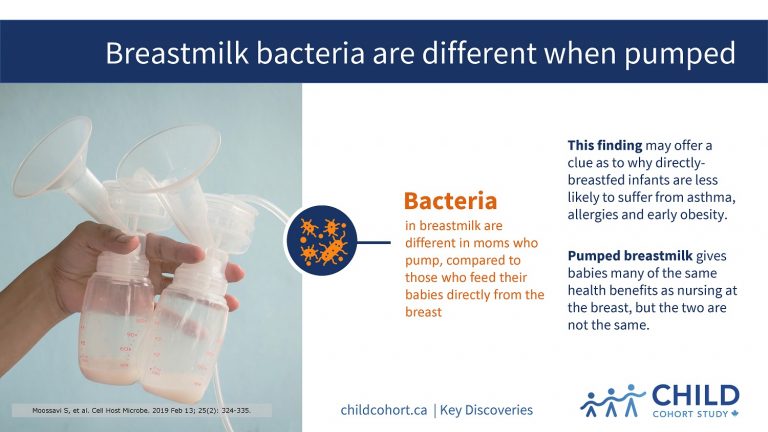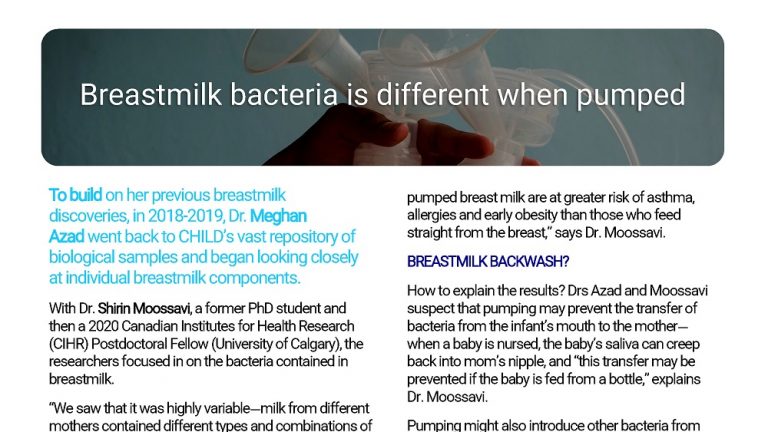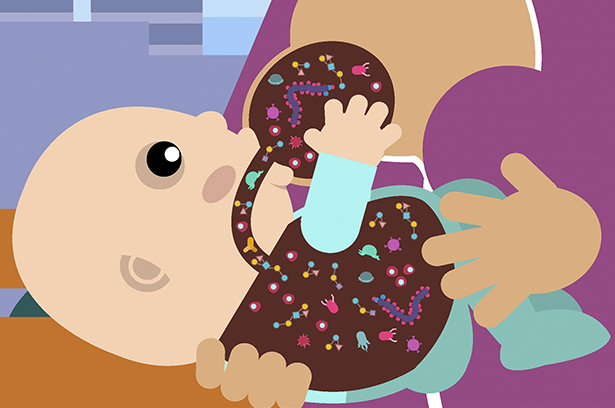Breastmilk bacteria is different when pumped
To build on her previous breastmilk discoveries, in 2018-2019, Dr. Meghan Azad went back to CHILD’s vast repository of biological samples and began looking closely at individual breastmilk components.
With Dr. Shirin Moossavi, a former PhD student and then a 2020 Canadian Institutes for Health Research (CIHR) Postdoctoral Fellow (University of Calgary), the researchers focused in on the bacteria contained in breastmilk.
“We saw that it was highly variable – milk from different mothers contained different types and combinations of bacteria,” says Dr. Moossavi. “So, our next question was, why the differences?”
Using information collected from the mothers, Drs Azad and Moossavi analyzed factors that might influence the milk bacteria. They considered whether the mother delivered vaginally or by C-section; her weight, age, diet, and ethnicity; and breastfeeding practices, such as exclusivity, duration and the method of feeding.
They discovered that milk bacteria were different in mothers who pumped their milk, compared to those who fed their infant directly from the breast.
In fact, of all the variables they analyzed, breastmilk pumping was the one factor consistently associated with differences in milk bacteria.
“This may offer us a clue as to why babies who consume pumped breast milk are at greater risk of asthma, allergies and early obesity than those who feed straight from the breast,” says Dr. Moossavi.
BREASTMILK BACKWASH?
How to explain the results? Drs Azad and Moossavi suspect that pumping may prevent the transfer of bacteria from the infant’s mouth to the mother – in other words, when a baby is nursed, the baby’s saliva can creep back into mom’s nipple, and “this transfer may be prevented if the baby is fed from a bottle,” explains Dr. Moossavi.
Pumping might also introduce other bacteria from the pump itself, which could alter the bacterial profile in mom’s milk.
The research was published in the journal Cell Host & Microbe and was one of the journal’s most cited papers in 2019.
The paper also drew a lot of interest from mainstream media, including from CBC’s Quirks and Quarks.
As often happens in translating research for the public, however: “some reports exaggerated the implications of the study and cast pumping in a somewhat negative light,” says Dr. Azad.
“But that’s not what people should conclude from our research. Pumped breastmilk gives baby many of the same health benefits as nursing – it’s just that nursing may have a slight edge – and we want to understand why, in order to provide helpful advice to moms who pump.”





